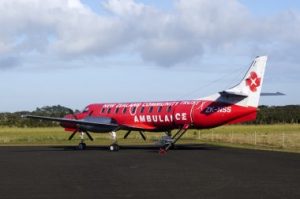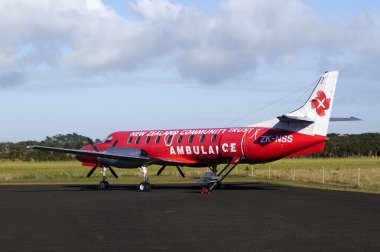Air ambulances are some of the most effective forms of medical transport available, but do these machines’ benefits outweigh the costs associated with operating them? This article aims to investigate the benefits and drawbacks of air ambulances to find a suitable answer to that question.
What is an Air Ambulance
When considering the advantages and disadvantages of an air ambulance, the first thing to understand is what exactly an air ambulance is. An air ambulance is an aircraft that has been designed and outfitted to handle medical emergencies, there are several kinds of air medical transport, but most commonly, they take the form of helicopters.
The Benefits of Air Ambulances

These ambulances are designed to be beneficial to medical care in a number of ways. From the highly-trained paramedics that handle the first response and stabilizing patients in the field to the specialized medical equipment installed with these ambulances, there are many ways that air ambulances have been optimized for medical care.
1. Access to Medical Emergencies in Remote Locations
The primary advantage of an air ambulance is the ability to reach critical medical emergencies in locations that could not be easily reached via land vehicles; this could mean anything from a mountainside to a yacht. Air ambulances enable medical care to swiftly reach patients stranded in these hard-to-reach locations to receive the medical aid they critically need.
2. Very Fast Medical Response
Another highly beneficial use of air ambulances is that they can respond to medical emergencies far more swiftly than land-based ambulances as they are not required to contend with roads or traffic and can instead head directly towards their patients. This swift response can help them to ensure that they provide the best possible aid to those with critical emergencies that need immediate and effective medical care.
3. Well Equipped to Handle Medical Care
Last but not least, air ambulances are well equipped with medical equipment necessary to help the paramedics that operate them effectively stabilize and care for the patients they transport.
Obstacles of Air Ambulances
On the other hand, there are a few obstacles to overcome when it comes to operating air ambulances, which make them less common than their land-based counterparts. These are not deal-breakers per se, but definitely aspects of air ambulances that ensure they are reserved for use only when they are entirely necessary.
Incredibly Expensive
Air ambulances are, fundamentally, an incredibly expensive form of machinery. The aircraft itself costs an arm and a leg to purchase and retrofit for medical use, and on top of that, the cost of maintaining and storing the air ambulance itself is also incredibly high, meaning they are a costly way to respond to medical emergencies.
Requires Extensive Training to Operate
Additionally, air ambulances need extensive training to operate, as not just anyone can fly an aircraft. This means that air ambulances can only be used when a suitably trained pilot is on staff, making them even more difficult and expensive to utilize.
Requires space
An air ambulance requires a special space to land at the hospital that must be clear at all times, which is difficult for smaller hospitals.








